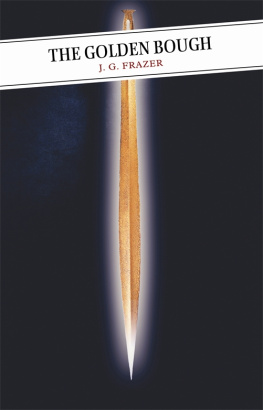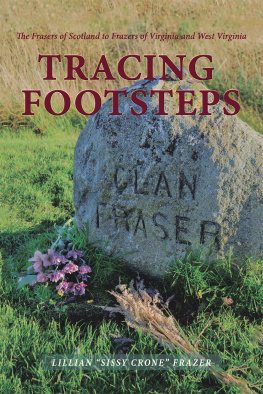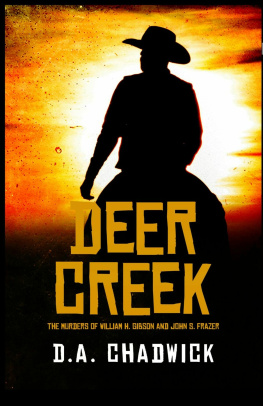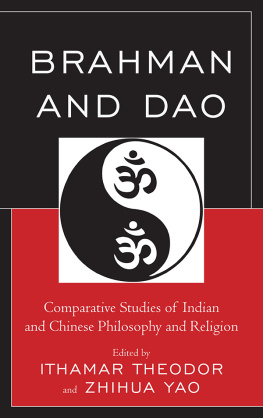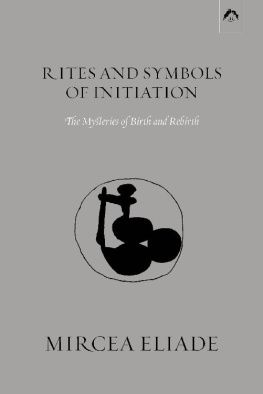I N the fifty years after its publication in 1890, no single book had a larger impact on the intellectual concerns of the Western world than J. G. Frazers The Golden Bough. It was, of course, a foundational text for the new discipline of social anthropology, shaping the issues around which the discipline would develop, but its impact was felt just as powerfully in philosophy, theology and psychology, in the social disciplines of sociology and politics and in literary and art criticism. The roll call of those who were influenced by or responded to The Golden Bough includes many of the most prominent and radical thinkers of the period, including Malinowski and Durkheim in social anthropology, Bergson and Ryle in philosophy, Freud in psychology and Spengler and Toynbee in philosophical history. The power that Frazers work held over the European mind is symbolised by the fact that Wittgenstein, who had written about it in 1930, was still writing about it as late as 1948.
When T. S. Eliot declared that for modern writers the maxim, return to the sources, is a good one because they should be aware of all the metamorphoses of poetry that illustrate the stratifications of history that cover savagery, which becomes the symbolic locus for the terrors both of Europe in the Second World War and of Argentina in the 1960s. In its representation of a terrifying past which humanity had not progressed beyond, Frazers work provided an explanation for the horrific present which Europe lived through between 1890 and the 1960s, and if that explanation provided no palliative to the horrors of modern history, it at least provided artists with a means of making sense of it, and thereby making it amenable again to the powers of the imagination.
The profound effect of The Golden Bough was based not on the absolute novelty of Frazers work much had been done before him by British anthropologists such as Tyler nor on its long-term significance as an explanation of the savage mind no modern anthropologists would regard Frazer as the basis of the discipline as it now exists. Its shock effect came from the fact that it collapsed traditional conceptions of progressive history, revealing that the past that modern humanity thought it had left behind still shadowed its contemporary existence and was, indeed, more pervasive in modern consciousness than the discoveries of science made over the last four hundred years. Frazers presentation of the history of humanity negated both the eighteenth-century Enlightenment and the nineteenth-century social Darwinist conceptions of continuous progressive improvement towards ever-higher levels of rationality: for Frazer, the history of humanity was a tale of repeated and terrible error out of which, with little certainty, had come the fragile conceptions of scientific truth on which modern civilisation was based, conceptions
Frazers work established the context in which modernist and indeed postmodernist thought conceived of Western history not as the paradigm of humanitys development towards perfection, but as the elaboration of a vast mistake about the nature of reality. When Heidegger or Derrida argue that Western culture is based on a philosophical mistake about the nature of language they follow in the footsteps of Frazer, who sees in magical and then in religious forms of human culture the misapplication of the logic of causation which modern science has only partially, and perhaps ineffectually, redeemed. For Frazer, the world we inhabit is powerfully and disturbingly illusory, and no more illusory than when we are sure we have escaped from previous illusions. As he puts at the opening of his Gifford Lectures on The Worship of Nature (included in this edition):
every one of us is perpetually, every hour of the day, implicitly constructing a purely imaginary world behind the immediate sensations of light and colour, of touch, of sound, and of scent which are all that we truly apprehend; and oddly enough it is this visionary world, the creation of thought, which we dub the real world in contradistinction to the fleeting data of sense. Thus viewed, the mind of man may be likened to a wizard who, by the help of spirits or the waving of his magic wand, summons up scenes of enchantment which, deceived by the very perfection of his art, he mistakes for realities.
Trapped in its own imaginings, the tale of humanity is a tale in which no absurdity, no grotesquerie, no horror, has not been believed as true somewhere in the world. As The GoldenBough expanded, from two volumes in the first edition in 1890 (reprinted here) to twelve volumes in the third edition of 1915, the enormous weight of evidence of the delusory powers of the imagination and of humanitys capacity to commit itself to them expanded into a vast ocean of irrationalism upon which the ship of reason voyaged almost without compass. In Afterword, a final supplementary compilation, published in 1936, of yet more evidence about the pervasive power of the imagination to delude the human mind, Frazer declared that he was led on, step by step, into surveying, as from some specular height, some Pisgah of the mind, a great part of the human race; I was beguiled, as by That the myth of the labyrinth becomes an explanation of the labyrinthine myths in which Frazer found himself enmeshed reveals the fundamental duality that made TheGolden Bough so powerful: it sceptically unveiled the dubious foundations of myths, legends and rituals to discover that it was only by means of the myths themselves that their falsehood could be comprehended. The book that set out to reveal the delusions of myth ended up by providing Western culture with a new series of myths by which it could seek to comprehend the contradictions of its own cultural history. It was to be a vicious circle repeated regularly in Western philosophy from Husserl to Foucault, and as such represented one of the founding statements of the problems with which modern thought has struggled since the 1890s.
The twentieth-century implications of Frazers work in an international environment were, however, no more remarkable than its nineteenth-century origins in Scottish and British thought. Frazers work was built on the insights of three of the most remarkable figures of the latter part of the nineteenth century and on some of the most significant contributions of Scottish intellectuals to the modern world. The first was John Ferguson MLennan (182781), an Edinburgh advocate with an interest in ancient history and culture who, in contributions to the Chambers Encyclopaedia, made the radical suggestion that ancient civilisation was structured on matriarchal rather than on patriarchal foundations. The particular form of this matriarchy is attested by the fact that the terms came to be the title of one of Freuds major publications, Totem und Tabu, published in 1913, though Freud himself was to take the terms not from MLennan but from Frazer.
MLennans theories were to reach the young J. G. Frazer through one of the most remarkable figures in the intellectual landscape of nineteenth-century Scotland, William Robertson Smith. A precocious linguist he learned Hebrew from the age of five under the tutelage of his father, a Free Church minister in Aberdeenshire Smith was, even in his twenties, a leading conduit between Scottish theology and developments in France, Germany and Holland. His introduction of a challenging new perspective in Scottish theology was marked by a series of lectures delivered in 1875 in which he argued against understanding the Bible primarily from the supernatural point of view, because
the evolution of Gods dealings with man cannot be understood, except by looking at the human side of the process. The only idea of moral and spiritual evolution possible to us, is that of evolution in accordance with psychological laws. The nexus sought must always be psychological. The teleology of revelation is divine; but the pragmatism of the revealing history must be human.

